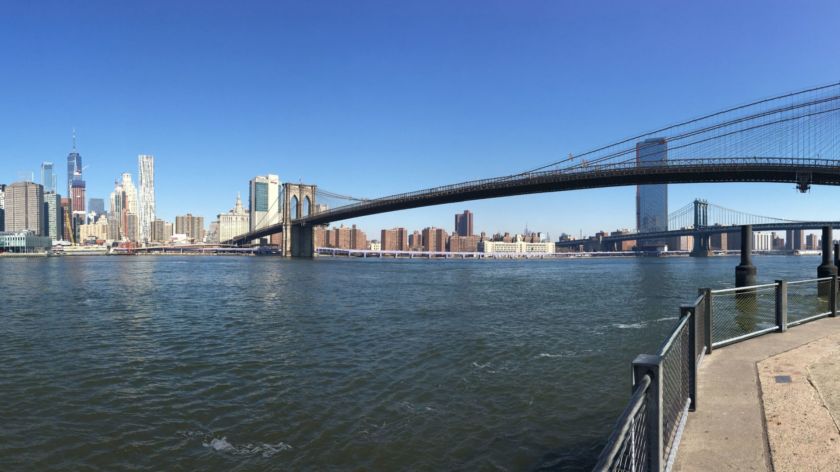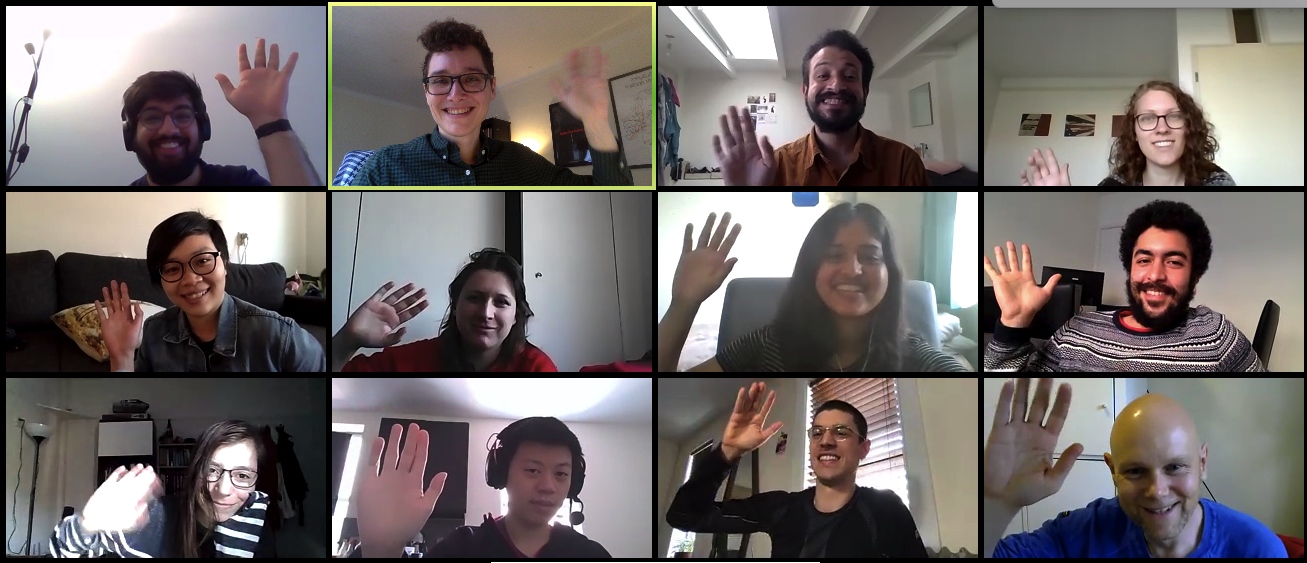In ‘the city that never sleeps’ it is quiet now even during the day
-
 Foto: Stan van Pelt
Foto: Stan van Pelt
New York is currently the epicentre of the corona pandemic. More than 10,000 people have already died from the virus. For years now, neuroscientist Saskia Haegens has been travelling back and forth between her labs at the Donders Institute in Nijmegen and Columbia University in New York City. She is currently in lockdown in the American city.
Usually, the streets of New York City are busy even in the middle of the night, said neuroscientist Saskia Haegens (35) speaking from the American city. The city that never sleeps is a cliché that is actually true. ‘At 3 in the morning, you have to wait for the traffic light before you can cross Flatbush Avenue, for example, a major road cutting through the middle of Brooklyn. But now there’s much less traffic even during the day, which is a bizarre sight.’ Speaking via Zoom, Haegens describes how daily life has come almost to a standstill in New York City, where her research lab is at Columbia University. Her other lab is at the Donders Institute in Nijmegen.
Where are you now?
‘At home in my apartment in Brooklyn.’
On TV we see queues of Americans in front of supermarkets. Is that what it is like in your neighbourhood too?
‘That’s hard for me to say. I’ve hardly been outside since the beginning of March, when the lockdown began. I do my grocery shopping only once a week at 2 am when it’s very quiet. I’m lucky to live only a 5-minute walk away from a supermarket that’s open 24/7.’
New York has been heavily hit by the virus. Are you worried?
‘Not personally. I have asthma, but I adhere to the social-distancing rules. I’m more concerned about relatives in the Netherlands. Fortunately, I can still fly back and forth to Europe if I have to – people with an American residence permit, like myself, aren’t subject to the ban on flying – but of course I hope that it won’t be necessary.’
Can you still work?
‘I’m working from home, just like almost everyone else. You can only go to the university for your experiments if your research is directly related to corona. My lab doesn’t fall into that category. We do fundamental research on brain activity, which we measure during brain surgery, for example. The six ongoing experiments in our group were abruptly stopped. My PhD students, postdocs and interns are analysing data from earlier experiments and data that collaborating research groups have made available.’
‘The corona crisis highlights the extreme inequality in America’
Are you concerned about the delay in your research?
‘Yes, but especially about the consequences for my interns. They usually have only a very short time to complete a project, and I’m trying to ensure that they don’t encounter delays in their studies. PhD candidates and postdocs usually have a bit more time. But I’m not putting pressure on anyone. The most important thing is for everyone to stay healthy, both physically and mentally. We’re not doing any lifesaving research, so there’s no rush.’
Do you see differences between the Netherlands and New York?
‘This situation further highlights the extreme inequality that already existed in America. I have affordable and good health insurance via Columbia University. If I have any health complaints, I can be tested for free at the university. So many Americans aren’t even insured. I’m also very fortunate to do work that I can now do safely from home and fortunate that the university continues to pay me even if, for example, I spend the entire day at home just reading the news. I also have friends who have suddenly lost their jobs. That’s how hard it often is in America.’

‘You can see that the university was ahead of the state with its measure, which I think was sensible. Americans are also used to taking responsibility themselves and are less government-oriented than Europeans are. Even before the governor of New York announced the lockdown, Columbia had closed. This is just the opposite in the Netherlands, where the universities closely follow the measures of the RIVM (National Institute for Public Health and the Environment).’
‘Columbia University sends a couple of emails about the corona crisis each day. Many of those are about the impact of the crisis on our lives, including our mental health: for example, what number to call for free psychological help. And every week, we receive invitations to Covid symposia where researchers speak and everyone can attend online.’
You lead labs in New York and in Nijmegen. How does that work?
‘I see it as one lab spread over two locations. There are presently four people in New York City and eight in Nijmegen. They form a single group of researchers who also work together. Two years ago, I started at both locations simultaneously, thanks in part to Veni and Vidi grants from NOW and American money. That’s also what I really wanted myself, because I work a lot with other research groups at both locations. I was awarded my PhD in Nijmegen, so there’s a strong link. I live primarily in New York City, but I spend a couple of weeks in Europe a few times a year.’
Sounds like a logistical challenge.
‘In the beginning, many colleagues said that I’d find out soon enough how difficult it was going to be. But it actually works really well. From the very start, we’ve held online lab meetings via Zoom, and I speak with my PhD students and postdocs in weekly one-to-one meetings. Either in real life or via Zoom, depending on where I am. So as a lab, we were perfectly prepared for the corona measures and for working from a distance. We’ve been used to this for years.’



